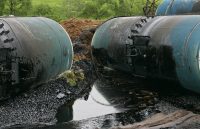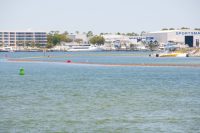Go Beyond Compliance to Prevent AST Spills
The federal regulations you should consider when developing management practices for ASTs include: Clean Air Act (CAA) regulations for tank vapor control, air toxics, and pollution reduction The Emergency Planning and Community Right-to-Know Act (EPCRA) and Comprehensive Environmental Response, Compensation, and Liability Act (CERCLA) hazardous substance reporting requirements The Clean Water Act (CWA)-incorporated OPA that […]










